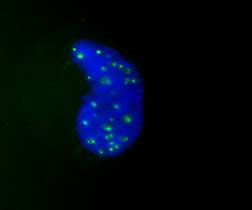Dr Chetan Kaher
BDS BSc (Hons) MFDS RCS (Eng)
“Academically, as well as clinically i have always tried to maintain an artistic flair, researching difficult but important subjects often coming to significant findings. I have won the Premier Symposium Post Graduate Research Prize for one of my studies below, which was presented at the ICDMFR Beijing, China. I have also been fortunate enough to gain scholarships from the General Dental Council and GKT University and the esteemed Wellcome Trust Studentship and achieved a First class honours for my bachelors degree.”
CJD: Potential for a large epidemic – Are dental procedures aiding its spread?
I conducted this research as part of my 1st class Bachelors’ degree in 2001. The reason, prion proteins (of which vCJD was one) had been found in Dental pulps. We know sterilisation procedures cannot destroy prions. The government at the time had made all tonsillectomy surgical instruments single use only. According to my findings, i believed there was reasonable evidence to make all root canal treatment instruments single use only too. They took their time but on 24th May 2007, the government made all root canal instrument single use only.
As of February 2009 vCJD has killed 164 people in Britain.
Read my research paper.
The Efficient and Specific Tumour Cell Killing by Modified Apoptin
The thesis submitted for my Bachelor of Science degree. One in three people develops cancer. This was my attempt at the holy grail. Apoptin, a protein, has been found to induce cell death specifically in cancerous cells both in vitro and in vivo in a variety of tumour types, independent of the genetic mutation(s). A variety of proteins, when fused to the TAT-PTD protein from HIV have transduced various cells and still retained their function. Protein transduction has occurred in a receptor independent manor and been highly efficient. Part of Apoptin shares homology with TAT-PTD. This study modified the end of Apoptin DNA into TAT-PTD, for the development of a protein based cancer therapy using the tumour specific properties of Apoptin and the transducing properties of TAT-PTD.
A modified version of this protein has eradicated liver cancer cells in animal models see here.
Further Apoptin research is ongoing at the Department of Oral Oncology, Kings College London.
Read my research paper.
The evaluation of advice given by health care professionals to pregnant patients regarding dental radiography
My team and I conducted this study as a result of a couple of pregnant patients of mine having dental radiographs at another practice and then becoming extremely worried as to the effects on the unborn child after being informed by another healthcare professional the radiographs were dangerous. Current guidelines suggest that dental radiography in pregnancy delivers such a small dose to the foetus that the associated risks can be regarded as negligible. Pregnant patients misinformed as to the risks to the foetus after dental radiography can undergo significant psychological distress, this has its own risks to the unborn child. This study surveyed current advice given about the safety of dental radiography during pregnancy by different groups of healthcare professionals. These included general medical practitioners, general dental practitioners and midwives. Substandard knowledge and misinformation on dental radiography in pregnancy and its risks were common amongst all healthcare professional groups.
This study won the Premier Symposium Post Graduate Research Prize in 2007. Read my research paper.
A Review of the Use of Inhalation Sedation in General Dental Practice
This study was carried out after i noticed a lack of clear information for Dentists on the use of inhalation sedation. Within dentistry, nitrous oxide inhalation sedation is the safest form of sedation used. It is particularly useful in anxious but co-operative children. One of problems associated with the use of nitrous oxide is the occupational exposure which has been linked to decreased psychomotor performance, haematological disorders, spontaneous abortion and reduced fertility. This article reviewed the history, use and safety issues surrounding occupational exposure to nitrous oxide and offers guidance on the use of nitrous oxide inhalation sedation in general dental practice.
Read my research paper.
Effects of Smoking and Methods of Cessation
I wrote this paper after being asked by a couple of patients as to the long term effects of smoking and ways to stop.
Read my research paper.
Smile Cliniq Limited. A company registered in England and Wales. Company number 08279068.
Registered office: C/O TG Associates 7 Jardine House, Harrovian Business Village, Bessborough Road, Harrow, Middlesex, HA1 3EX
Terms of Use | Privacy Policy | Health & Safety Charter | Complaints procedure | Data Protection | Cookie Settings
Website by Digimax Dental









